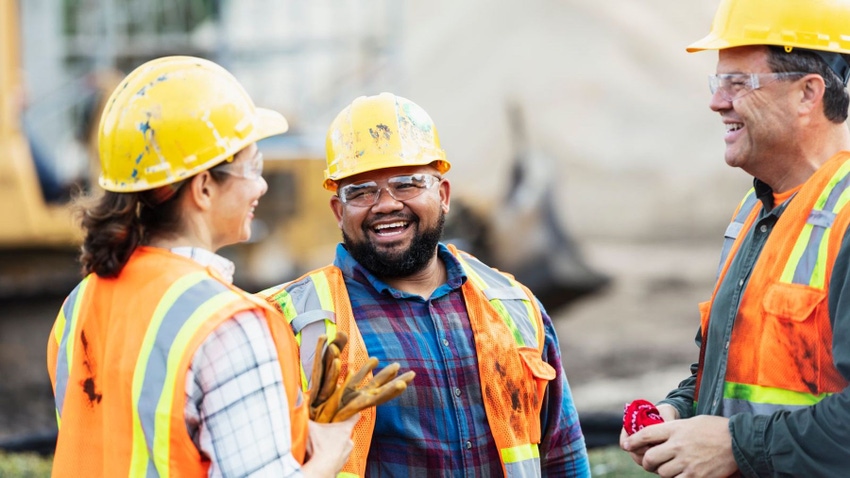How to Lessen Suicides Among Construction Workers
Dan Lester provided World of Concrete attendees 12 strategies to keep staff mentally healthy despite the industry’s macho culture.

Dan Lester teaches contractors how to recognize the signs of deteriorating mental health and suicidal ideations, but during National Suicide Prevention Month in September, his brother took his own life.
“While I was talking about the warning signs of suicide, my own brother died by suicide,” said Lester, vice president of field culture and inclusion at Clayco Enterprises. “Sometimes it’s got to hit home until it hits real.
“Deaths are ordinary, but suicides are not ordinary.”
The charismatic speaker provided many constructive ideas and strategies during his presentation, “Building Psychological Safety to Address Mental Health,” to a packed room.
Lester said he provided this personal example because suicides in construction are not abating, and managers need to recognize the warning signs. He quoted research that shows 53.2 per 100,000 construction workers die by suicide every year, the highest suicide rate of any industry and four times greater than the national average.
Lester noted construction has the highest rate of alcohol consumption, twice the national average. Plus, the industry is No. 1 in opioid addictions and overdoses, mainly because of the pain that comes with such physically demanding jobs.
“People just want to be free from pain,” he said. They say, “I took the pills so I can be free from pain. If I cannot work tomorrow my family can’t eat.”
Construction workers don’t seek mental health treatment because of shame and stigma and fear of judgment by peers and of negative job consequences.
“You take a mental health day and come back to the jobsite, and you get, ‘Must be nice, sweetie, to take a day off,’” he said.
“We can’t walk away from it,” he said, referring to the profession’s macho culture. “This is who we are.”
Conversations about mental health are never easy, he said, but they are critical when someone has lost all hope.
Besides the personal toll of suicide, Lester noted it is important to keep workers mentally healthy because of the severe labor shortage: “For every seven workers leaving the industry, two are coming in and maybe one stays.”
Prevention Strategies
Lester described these strategies to help lessen mental health issues and suicides among construction workers:
Watch and listen. Notice significant shifts in an employee’s behavior if you think they are having suicidal ideations.
Allow for failure. When people are learning, they have to learn with failure. “That’s why we have internships and apprenticeships—so we can have learned failures.”
Ask questions. For example, ask employees if they were in leadership, what would they do to fix a certain problem? “You might learn something. It allows you to see how they are thinking.”
When you reject someone’s idea, explain why. “You want to reward the vulnerability because you want them to keep bringing more ideas.”
Provide leadership opportunities. Ask for help from lower-status workers to allow them to feel included in decision making.
Learn personal details. Find out about their families and interests and ask if they are veterans so you can call them out for serving their country.
Be kind. Fear’s negative energy burns people out quickly.
Forbid personal attacks. “You can attack my performance but not me.”
Develop “psychological safe” workplace. Talking about mental health can make them feel vulnerable. Let workers be open and honest without fear of retaliation.
Thank jobsite workers regularly. “You have to be more appreciative of their eight hours on the job.”
Send handwritten notes. “What, I’ve gotta write?” he chuckled. Handwritten notes are “wildly popular with people,” but don’t mail them; hand them to workers if you can. If they work in the office, wait until they leave and place the note on their desk.
Be a visible leader. Make sure they see you on the jobsite because your presence matters. Learn their names and how to pronounce them. Also, don’t say you know how they feel; find out. Finally, let them know they are important: “You have to tell them you love them,” he said.
About the Author(s)
You May Also Like




